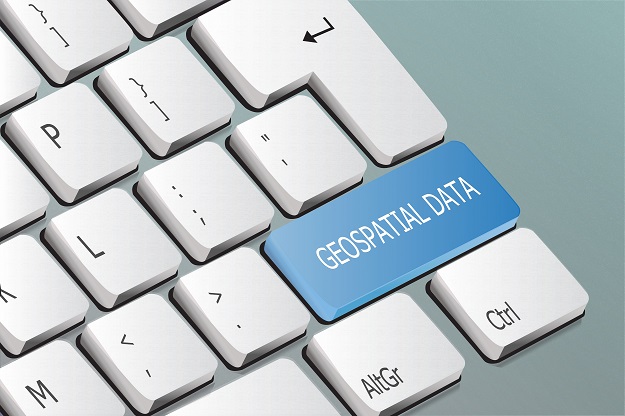
Image credit: ©stock.adobe.com/au/AliFuat
Efforts are being made to ensure that geospatial and location data are used to help, not harm.
By Denise McKenzie
In 2019, Geovation — the UK Ordnance Survey’s start-up accelerator — formed a partnership with the Omidyar network to raise awareness of the potential risks and harms that might arise from using location data, and to identify solutions that realise benefits while minimising negative impacts.
This program of work became known as the Benchmark Initiative, which has delivered a series of public thought leadership events and an entrepreneur program.
In parallel with Benchmark, the American Geographical Society (also in partnership with Omidyar Network) launched EthicalGEO in the USA, which has supported research fellows investigating issues at the intersection of ethics and geospatial sciences.
The Benchmark dialogues have investigated: bias, transparency, privacy, imbalances of power, anonymity, contact tracing, managing social distancing in public areas and workspaces, smart cities, designing for accessibility, data colonialism, tracking waste, and data relating to human migration and humanitarian crises.
Looking at location data ethics in practice, four entrepreneur teams were funded to develop solutions in transport, mobility, development and mobile technology (see box).
EthicalGEO has supported new research into emerging challenges and opportunities, including: high-tech survey tools to empower informal land rights activists; providing low-tech training for communities experiencing environmental injustice; evaluating individual concepts of privacy; and providing educators with resources to teach students about geoprivacy.
EthicalGEO has also assembled an online knowledge repository of resources for researchers working to understand ethics and geospatial technology.
When these initiatives got started, the ethical use of location data was not a common topic in public policy or media discourse. But all that changed in early 2020. The COVID-19 pandemic significantly increased global interest in the use, effectiveness, and fairness of different applications for contact tracing, for monitoring activity in public spaces and workplaces, and for enforcing social distancing.
This focus on location data use served to highlight the importance and relevance of the Benchmark and EthicalGEO work, and supported the joint mission to bring location data into the global data ethics debates and data ethics into geospatial practice.
Throughout our work, there has been a great deal of interest among users of geospatial data to address and find solutions to the challenges. However, it became clear that users of location data had no shared principles, guidelines or frameworks specific to geospatial data.
Put simply, there was a lack of clarity on what questions to ask and how to discover where risks and harms could occur from uses of location data. Existing data ethics guidance tends to be silent about location data or consider it as only relating to privacy, being just another type of personal data can be used to identify individuals.
After many discussions with geospatial practitioners and organisations around the world, we concluded that shared ethical principles could improve clarity, trustworthiness and trust, and help to realise greater overall benefits from the use of geospatial data technologies.
This is why we embarked on writing the Locus Charter, the 10 principles of which are:
- Realise the opportunities that location data can bring to the world
- Understand impacts of the use of location data particularly for individuals and communities.
- Do no harm
- Protect the vulnerable
- Address bias
- Minimise intrusion, into people’s lives
- Minimise data, only collect what you really need
- Protect privacy
- Prevent the identification of individuals
- Provide accountability
The full Charter and preamble can be found at https://ethicalgeo.org/locus-charter.
There will always be different priorities in ethics for geospatial in different regions, countries, groups and contexts. As the Locus Charter community builds, users of location data are encouraged to join the community and help to evolve both the ethics dialogue and practice.
Making data ethical
The Benchmark Initiative funded four teams to develop solutions at the intersection of ethics and geospatial sciences:
Measuring representation in mobility data and protect people’s privacy
https://benchmarkinitiative.com/blog/PBIF_Summary
Identifying location-based sanitation data to improve decision making
https://benchmarkinitiative.com/blog/eir-gather
Clear your tracks
https://www.emergingfield.co.uk/work/clear-your-tracks
Transport Data: Maintaining privacy while generating insights
https://benchmarkinitiative.com/blog/Travelai_Pt1
Denise McKenzie is chair of the board of the UK Association for Geographic Information, co-author of the Locus Charter and serves on the Steering Committee of Women in Geospatial+.
This article was first published in Issue 114 (Aug/Sep 2021) of Position magazine.
Stay up to date by getting stories like this delivered to your inbox.
Sign up to receive our free weekly Spatial Source newsletter.







